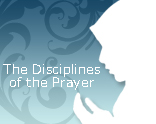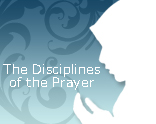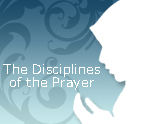Know that the people of knowledge regard the qiyam (the standing position in the
Salat) to be a sign of Unity of Actions. Similarly, they see that the ruku'
(bowing in the Salat) refers to the Unity of Attributes, and the sujud
(prostration) refers to the Unity of Essence -these will be explained in their
proper places. But qiyam's reference to the Unity of Action is in the very
standing position as well as in the wordings recited while standing. As to the
standing position and its reference to the Unity of Action, it is because it
denotes the servant's observation of his duty toward Allah, as well as His
position [maqam] of self-Existence, manifested in the Sacred Emanation as a
manifestation of Action. In this manifestation the position of Allah's
Activeness [fa'iliyat] is displayed, and all the beings are absorbed in the
manifestation of Action and perished under the Manifest Majesty. In this
instance, the gnostic discipline of the salik is to remind his heart of this
divine grace and to give up, as much as he can, his personal individuations [ta'ayyunat=I
nafsiyah], and to explain to his heart the truth of the Sacred Emanation, and to
bring to the core of his heart the fact concerning Allah's Self-Existence [qayyumiyat]
and that the creatures are dependent upon Him. Hence, after the fixation of this
fact in the salik's heart, his recitation will be by the tongue of the Haqq
(Allah), and the praiser [dhakir] and the praised [madhkar] will be the Haqq (
Allah) Himself, and some of the secrets of the Fate will be exposed to the
Gnostic's heart, and "You are as You praised Yourself'1 and "I take
refuge in You from You"2 will be disclosed to him in some degrees,
and the heart of the Gnostic will receive some of the secrets of the salat, such
as looking at the place of prostration, which is of dust, the principal origin
(of man), or subjugating the neck and declining the head, as required, implying
humility and destitution of "the possible", and the annihilation under the Might
and the Sovereignty of (His) Majesty.
﴾O mankind! It is you who are in need of Allah, and Allah is He Who is
the Self-sufficient, the Praised One.﴿3
As concerning the wordings of the recitation being a reference to the Unity of
Action, we shall explain that in details when we come to comment on the blessed
surah of al-Hamd, insha' allah (Allah willing).
* Book: Adabus Salat "The Disciplines of the Prayer". By: Imam
Khomeini.
1- Of an invocation
from the Messenger of Allah (SA) in 324. Misbahush Shari'ah, ch. 5. his
prostration. Furu 'ul Kafi vol. 3, p. 'Awaliyul-La'ali, vol. 1, p. 389, hadith
21.
2- Ibid. Misbahul Mutahajjid wa Silahul Muta'abbid, p. 308.
3- Surah al-Fatir: 15.



![On Some Disciplines Concerning Permissibility [ibahah] of Place](https://english.almaaref.org/uploaded/essaysimages/big/lvl120130322030419.jpg)















